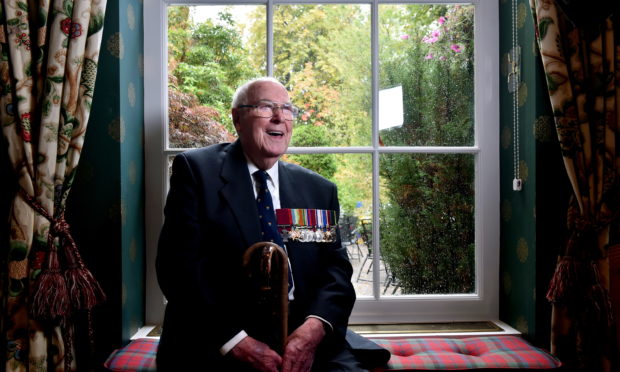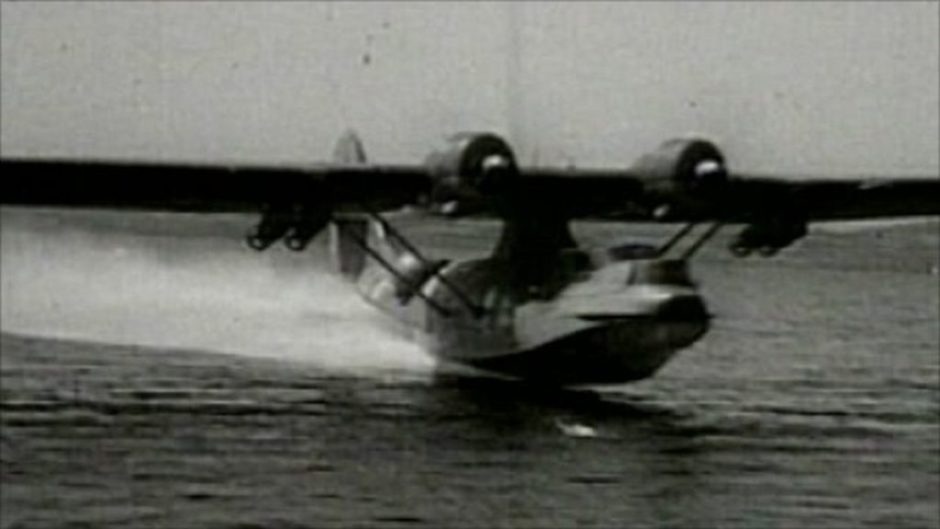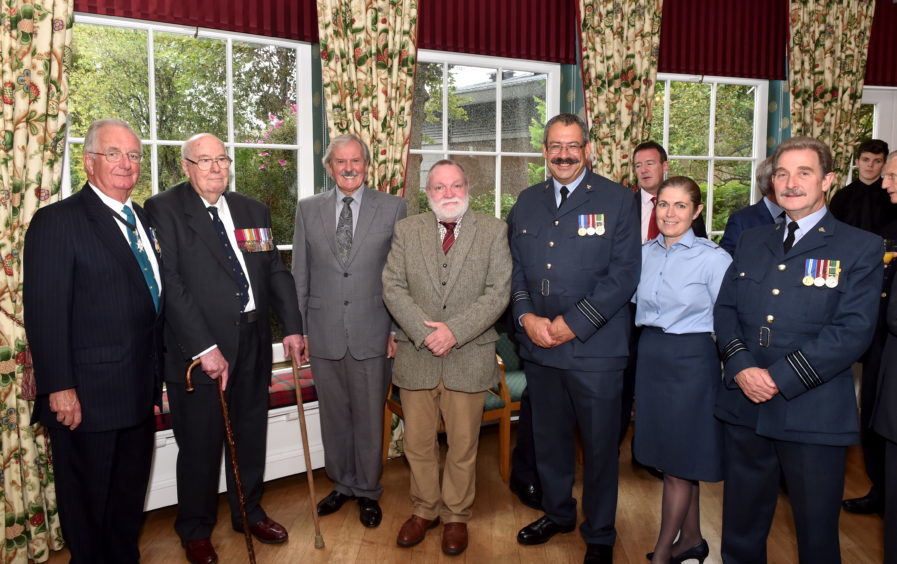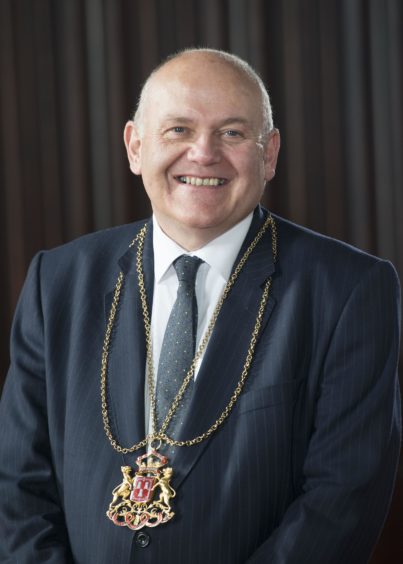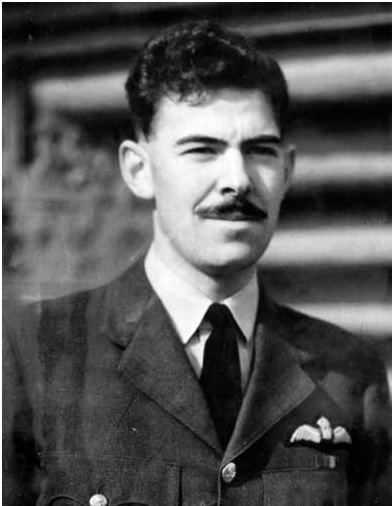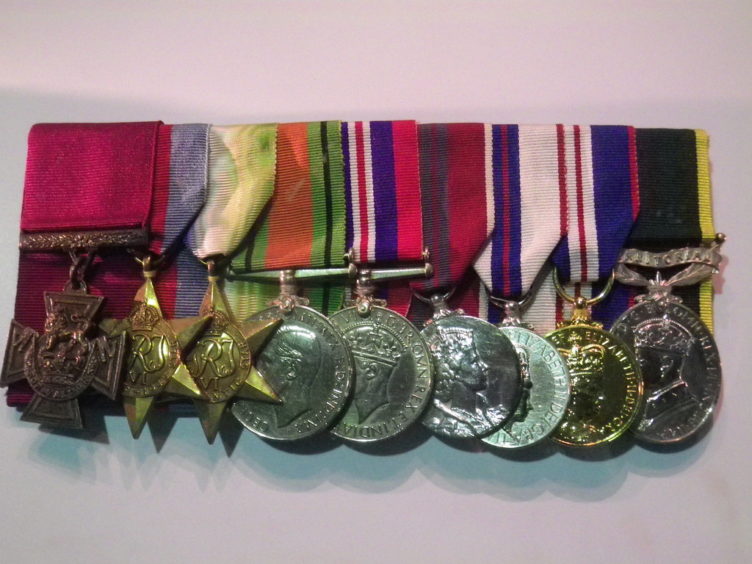He was born just two years after the formation of the Royal Air Force.
And now, Aberdeen pilot, John Alexander Cruickshank, who was awarded the Victoria Cross for his gallantry during the Second World War, has been toasted for his “selfless courage” as he gets set to celebrate his 100th birthday in the Granite City on Wednesday.
Audacious mission
The former Aberdeen Grammar school pupil was involved in one of the most audacious missions of the conflict when he flew his Catalina aircraft through a hail of flak over Norway in 1944, and while his first pass was unsuccessful, he brought it around for a second sortie, this time straddling a U-boat and sinking the vessel.
However, the German anti-aircraft fire had been deadly accurate in response, killing the navigator and injuring four others, including both Flight Lieutenant Cruickshank and second pilot, Flight Sergeant Jack Garnett.
Mr Cruickshank received scores of injuries while he and his comrades were sinking the German submarine, but eventually managed to safely land his plane.
Refused medical attention
The Scot was hit in 72 places, and suffered serious lung injuries and 10 penetrating wounds to his lower limbs.
Yet, he refused medical attention until he was sure that the appropriate radio signals had been sent and the aircraft was on course for its home base.
Even at that stage of his privations, he eschewed morphine, aware that it would cloud his judgement and potentially jeopardise the rest of the men on board.
Flying through the night, it took the damaged aircraft five-and-a-half hours to return to Sullom Voe in the Shetland Islands, with Flt Sgt Garnett at the controls and his colleague lapsing in and out of consciousness in the back.
However, the 24-year-old Scot then returned to the cockpit and took command of the aircraft.
Deciding that the light and the sea conditions for a water landing were too risky for his inexperienced comrade, he kept the craft in the air circling for an extra hour, as the prelude to bringing it down successfully on the water and ferrying it to an area where it could be safely beached.
Selfless courage
It was an astonishing act, and yet Mr Alexander has always shunned the limelight. As one of his RAF colleagues later recalled, he felt he was the lucky one to survive the conflict.
Aberdeen’s Lord Provost, Barney Crockett, said: “John Alexander Cruickshank has shown the sort of selfless courage and dedication to duty which should make everybody feel proud of his service.
“I would like to wish John a very happy 100th birthday and thank him for everything he did during the Second World War and being awarded the VC for his remarkable bravery.
“It was typical of him that, despite receiving more than 70 injuries, he was more concerned about his comrades and ensuring they all got home safely after their mission.
“I have met John, he has an outstanding intellect and was able to explain how his actions fitted in with the whole Allied strategy in the war. It was a privilege to talk to him.
“He is from a generation which has never sought the spotlight. But he deserves all our thanks and good wishes as he celebrates this special milestone.”
Dr Claire Armstrong, chief executive of Legion Scotland, said: “After the wonderful occasion of VE Day, it is nice that the celebrations are continuing as we mark the very special birthday of John Alexander Cruickshank.
“We wish John a very happy 100th birthday and we would like to take this opportunity to thank this exceptional VC recipient for all that he did for our country during his time in the RAF.
“We hope that he has a very enjoyable day and reflects proudly on all that he has achieved in his incredible life.”
John McLeish, the chief executive of the Gordon Highlanders Museum in Aberdeen, was also quick to pay homage to the veteran on reaching his personal century.
He said: “Flt Lt Cruickshank is an inspiration to all of us here. His extraordinary bravery and courage have, quite rightly, been honoured at the highest level.
“From everyone at the museum, we wish John a very happy 100th birthday.”
The Royal Air Force still remains in close contact with Mr Cruickshank, but it’s typical of him that he doesn’t want a fuss made over this milestone.
A spokesman said: “He will celebrate his 100th birthday on Wednesday May 20 amongst his close friends and family, and we ask that his privacy is respected on this special occasion.”
The transcript of John Alexander Cruickshank’s VC citation
“This officer was the captain and pilot of a Catalina flying boat which was recently engaged on an anti-submarine patrol over northern waters. When a U-boat was sighted on the surface, Flying Officer Cruickshank at once turned to the attack.
“In the face of fierce anti-aircraft fire, he manoeuvred into position and ran in to release his depth charges.
“Unfortunately they failed to drop. Flying Officer Cruickshank knew that the failure of this attack had deprived him of the advantage of surprise and that his aircraft offered a good target to the enemy’s determined and now heartened gunners.
“Without hesitation, he climbed and turned to come in again. The Catalina was met by intense and accurate fire and was repeatedly hit. The navigator/bomb aimer was killed. The second pilot and two other members of the crew were injured.
“Flying Officer Cruickshank was struck in seventy-two places, receiving two serious wounds in the lungs and 10 penetrating wounds in the lower limbs. His aircraft was badly damaged and filled with the fumes of exploding shells.
“But he did not falter. He pressed home his attack, and released the depth charges himself, straddling the submarine perfectly. The U-boat was sunk.
“He then collapsed and the second pilot took over the controls. He recovered shortly afterwards and, though bleeding profusely, insisted on resuming command and retaining it until he was satisfied that the damaged aircraft was under control, that a course had been set for base and that all the necessary signals had been sent.
“Only then would he consent to receive medical aid and have his wounds attended to. He refused morphia in case it might prevent him from carrying on.
“During the next five-and-half hours of the return flight he several times lapsed into unconsciousness owing to loss of blood. When he came to, his first thought on each occasion was for the safety of his aircraft and crew.
“The damaged aircraft eventually reached base but it was clear that an immediate landing would be a hazardous task for the wounded and less experienced second pilot.
“Although able to breathe only with the greatest difficulty, Flying Officer Cruickshank insisted on being carried forward and propped up in the second pilot’s seat.
“For a full hour, in spite of his agony and ever-increasing weakness, he gave orders as necessary, refusing to allow the aircraft to be brought down until the conditions of light and sea made this possible without undue risk.
“With his assistance the aircraft was safely landed on the water. He then directed the taxying and beaching of the aircraft so that it could easily be salvaged.
“When the medical officer went on board, Flying Officer Cruickshank collapsed and he had to be given a blood transfusion before he could be removed to hospital.
“By pressing home the second attack in his gravely wounded condition and continuing his exertions on the return journey with his strength failing all the time, he seriously prejudiced his chance of survival even if the aircraft safely reached base.
“Throughout, he set an example of determination, fortitude and devotion to duty in keeping with the highest traditions of the Service.”
A real-life hero in our midst
Mr Cruickshank was applauded by the audience in 2018.
Those of us who attended the First World War commemorative production “Far, Far from Ypres” at His Majesty’s Theatre in Aberdeen in 2018 could scarcely have imagined we had a real-life hero in our midst.
It’s been a good week. Loved the Inversnecky cafe sign, was mesmerised by Far Far from Ypres and enjoying Lost Songs of St Kilda! pic.twitter.com/TqfswnlNUg
— Neil Drysdale (@NeilDrysdale) August 11, 2018
But sitting there, in the audience, was John Alexander Cruickshank, the pilot who won a Victoria Cross in 1944 and who has been alive almost as long as the Royal Air Force itself.
As usual, with this modest character, he didn’t want any fuss made about his past exploits. It has been left to others to pay tribute to his fortitude and courage under fire.
One of his friends said later: “I had the privilege of meeting him (Flt Lt Cruickshank) at a dinner and it was an unforgettable experience for everybody who was there.
“There was a stunned silence for 45 minutes while he spoke, because everyone present recognised the incredible bravery which he had demonstrated.
“And yet, one of the things which struck us the most was that he didn’t want a big fuss made about it. After everything that he had endured, when he regained consciousness in the Catalina, the first thing he said was: ‘How are my crew?'”
No wonder everybody in the auditorium that night gave him a rousing reception!
